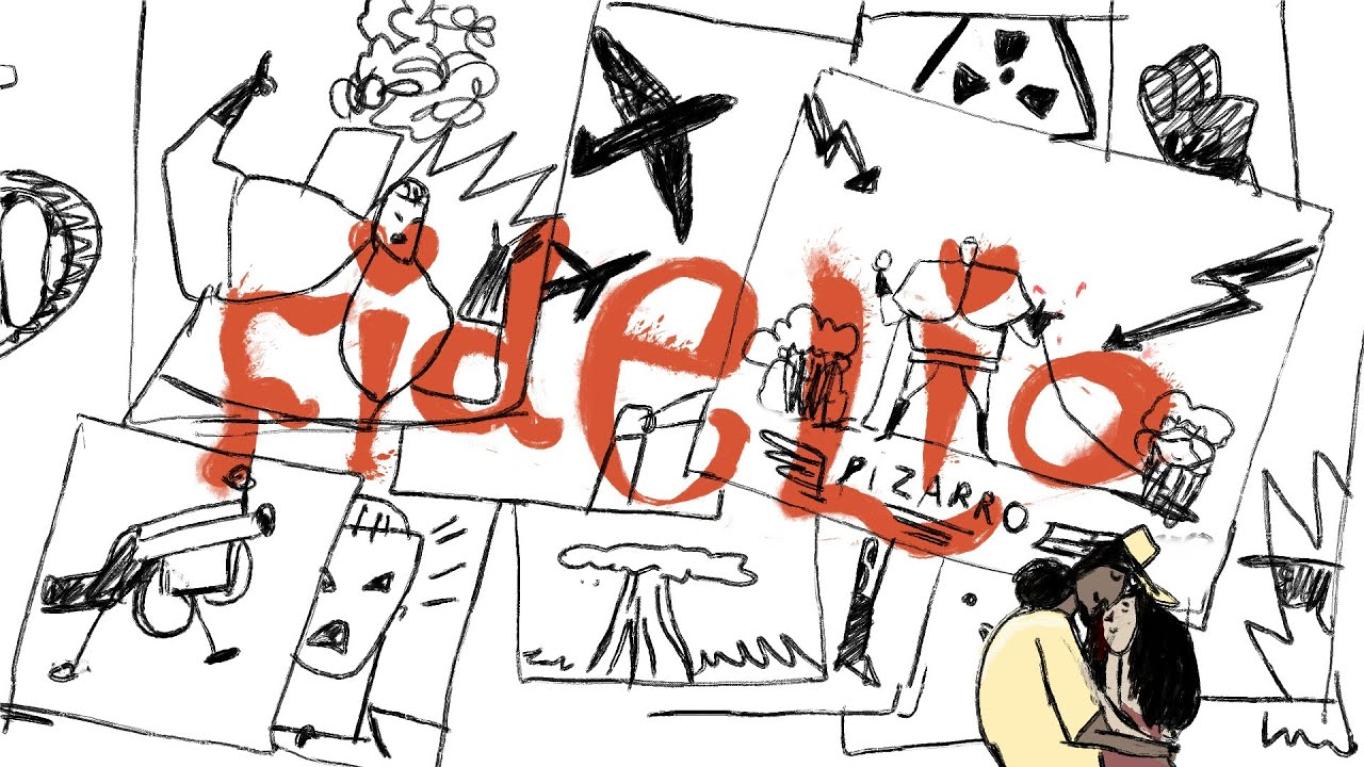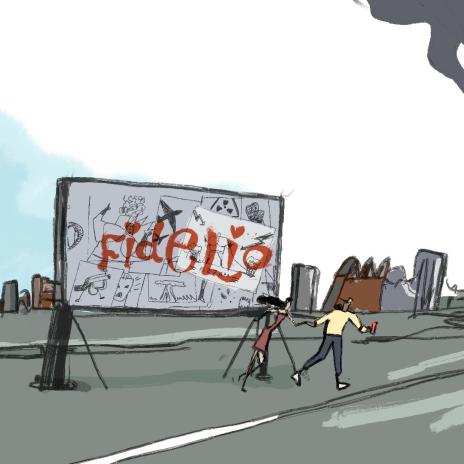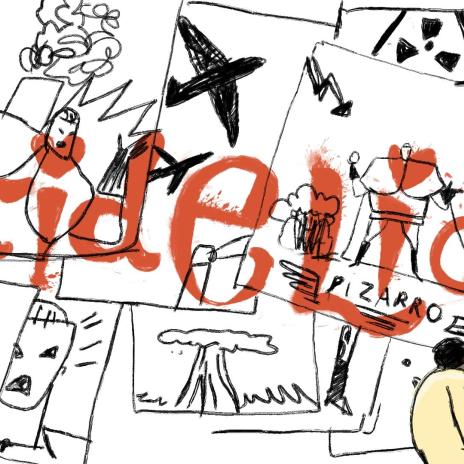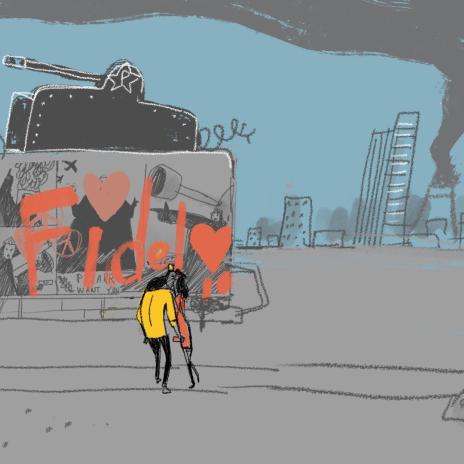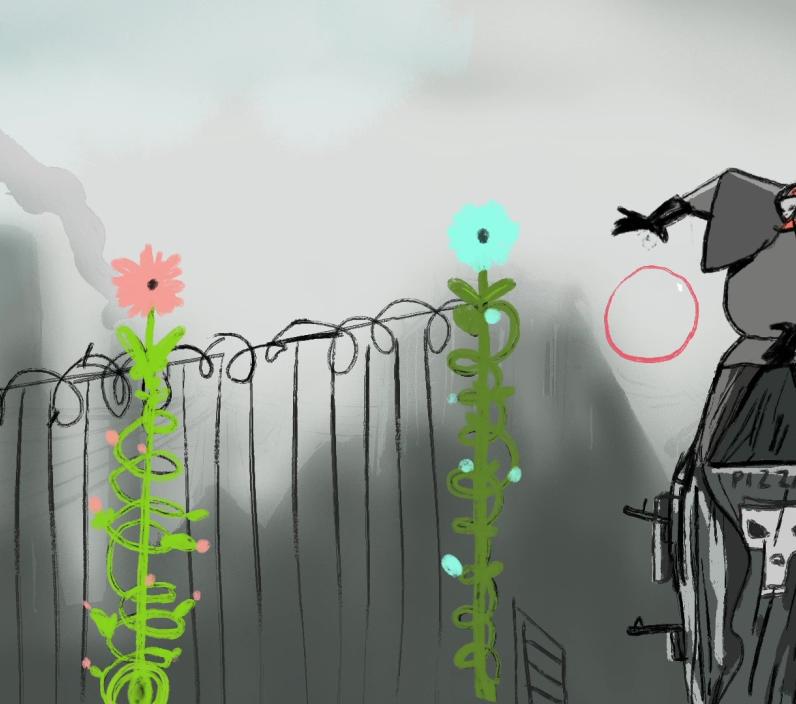

A life-saving opera for young people today
An interview with Judith Vindevogel, Director (and founder of WALPURGIS)
Since 2001, my company WALPURGIS and I have been regularly taking an opera classic out of our library to separate the text from the music, out of sheer curiosity and with a great pleasure in performing, so that its content can resonate in a new way with us and with our times.
In 2011 we immersed ourselves for the first time in Fidelio, Beethoven's only opera, which he continuously refined for many years. This opera has been with us ever since. After a concert reading of the libretto with five actors, two sopranos and a bass-baritone, a pianist, an asylum-seekers' choir and a brass band, we worked on a musical/theatrical adaptation of Fidelio for children in the autumn of 2015. Five days before the premiere at the Théâtre de Saint-Quentin-en-Yvelines, France was hit hard by a series of terrorist attacks that claimed the lives of 129 people and injured more than 350. Suddenly, our Fidelio is no longer an opera-story, but a testimony of what ruthless (political and religious) violence can do to a human being.
Our Fidelio is no longer an opera-story, but a testimony of what ruthless (political and religious) violence can do to a human being.
A state of emergency is declared and all school performances are cancelled. So we decide to make an unplugged version, without a set. With the two sopranos (Leonore and Marcelline), the bass-baritone (Rocco/Pizarro), the puppet (Florestan), the pianist, an extra narrator and some props (a pair of scissors, some costumes, Marcelline's love letter, a small projection screen, a wooden pistol and Pizarro's golden mask), we go from school to school to tell the story of how Leonore manages to free her friend Florestan from the murderous clutches of the tyrant Pizarro. In mid-December 2015, we finally get the green light to go on tour with the show. Between November 2015 and January 2020, we gave 185 performances for some 19,000 (vulnerable) children and adults. Nevertheless, it seems to us that we are not finished with the story of Fidelio. Spurred on by Opera Europa's request to film our music theatre show, in 2020 we begin to create an animated film in which we again try to capture the spirit of Fidelio.
Freedom, equality and fraternity
Beethoven's work expresses great political commitment. At the age of twenty, he followed with great interest the French Revolution, which led to profound political upheavals, civil war and the regime of Terror. Between June and October 1803, Beethoven wrote his Symphony No. 3, the Eroica, which he dedicated to Napoleon, the liberator of the French people, in whom he saw a great statesman. But in December 1804, Napoleon proclaimed himself emperor. Beethoven was horrified.
What remains of the ideals of freedom, equality and fraternity that we hold in such high esteem? How can we ensure that they do not become hollow or naive words, inactive and harmless thoughts? How can we stem the growing social and economic inequality, hardening, polarisation and racism? How can we translate our ideals into action? How do we ensure that we do not fall back into intolerance and fanaticism and how do we avoid being guilty of violence?
▶ Fidelio - Watch the full performance on OperaVision from 24 October 2020 to 23 April 2021.
